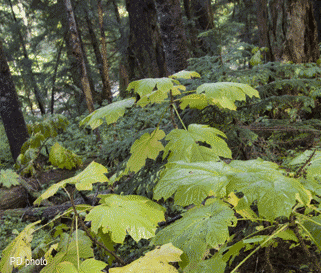


IF YOU ARE LOST
The first thing to do is stop! Don't allow yourself to panic. Don't wander around in the hope that you will find your way. You will only become more lost and make it difficult for searchers to find you. It's quite common for lost hikers to panic and walk around, hoping to find a familiar landmark. However when the person with whom you left your travel plan alerts search and rescue, the rescuers could arrive at the most reasonable location, while you have wandered off to an entirely different place. This causes confusion and waste of valuable time, especially if you are in dire need of help.
The best thing to do is to sit down in a comfortable spot, in the shade or shelter if possible, while you take inventory of your all your safety gear. Figure out what you can use to help your situation. Then go to the closest open spot that is visible from the air. Lay out your solar reflective blanket and anchor the edges. Lay out rocks or large sticks to spell the letter X. Three X's are best as three of any letter signals an emergency. If you can form an SOS that is even better.

If you are on a trail and you think someone will soon be along, stay where you are. Hikers make the situation worse when they wander aimlessly. Fix an anchor spot and travel in straight lines out and back in various directions. Don't lose sight of where your anchor spot is. If it is obvious that this won't work, sit and relax and use a whistle to attract other hikers. As the light fails and it gets dark stay in a safe place. Don't move around. Try your cell phone. You might have to climb to a higher place to find reception but don't lose sight of your anchor spot.
Put your reflective mirror in your pocket in case of an air search. Your emergency whistle should also be in your pocket. Or hung around your neck. If you think people might be within hearing distance use your whistle in groups of three short blasts. Yelling is not as effective and uses valuable energy. If you have a tent, erect it and lay out your sleeping bag and any bright clothing. Make yourself and equipment as visible as possible.
Take care of yourself. Eat, drink and rest in any available shade or shelter. If you have to spend the night, dress in your extra clothing. If you don't have a tent use your emergency shelter to keep out of the wind.
Use extreme caution if you have to move around at night. Use your flashlight to see snakes, scorpions or other visitors. Use whistle blasts to scare animals away at night.
If you are short of water don't eat. Our bodies require water to process food, which in turn can speed up dehydration. In desert conditions water, not food, is the primary concern. However if your urine color is light colored, you can eat a small amount of food.
If you normally take prescription medicine continue to take it as prescribed. All part of taking care of yourself while waiting for help.
Because you left a travel plan, (you did didn't you?) remain confident that you will be found. Take an inventory of your emergency equipment. If you have to stay overnight dress in your extra clothes and use the large garbage sack, tube tent or foil blanket to stay warm. Eat your emergency food and drink water. Look after yourself and remember that you left your hiking plans with a reliable person who will alert search and rescue.
Preparedness is the brother of survival.
Back to Prepardness Index
